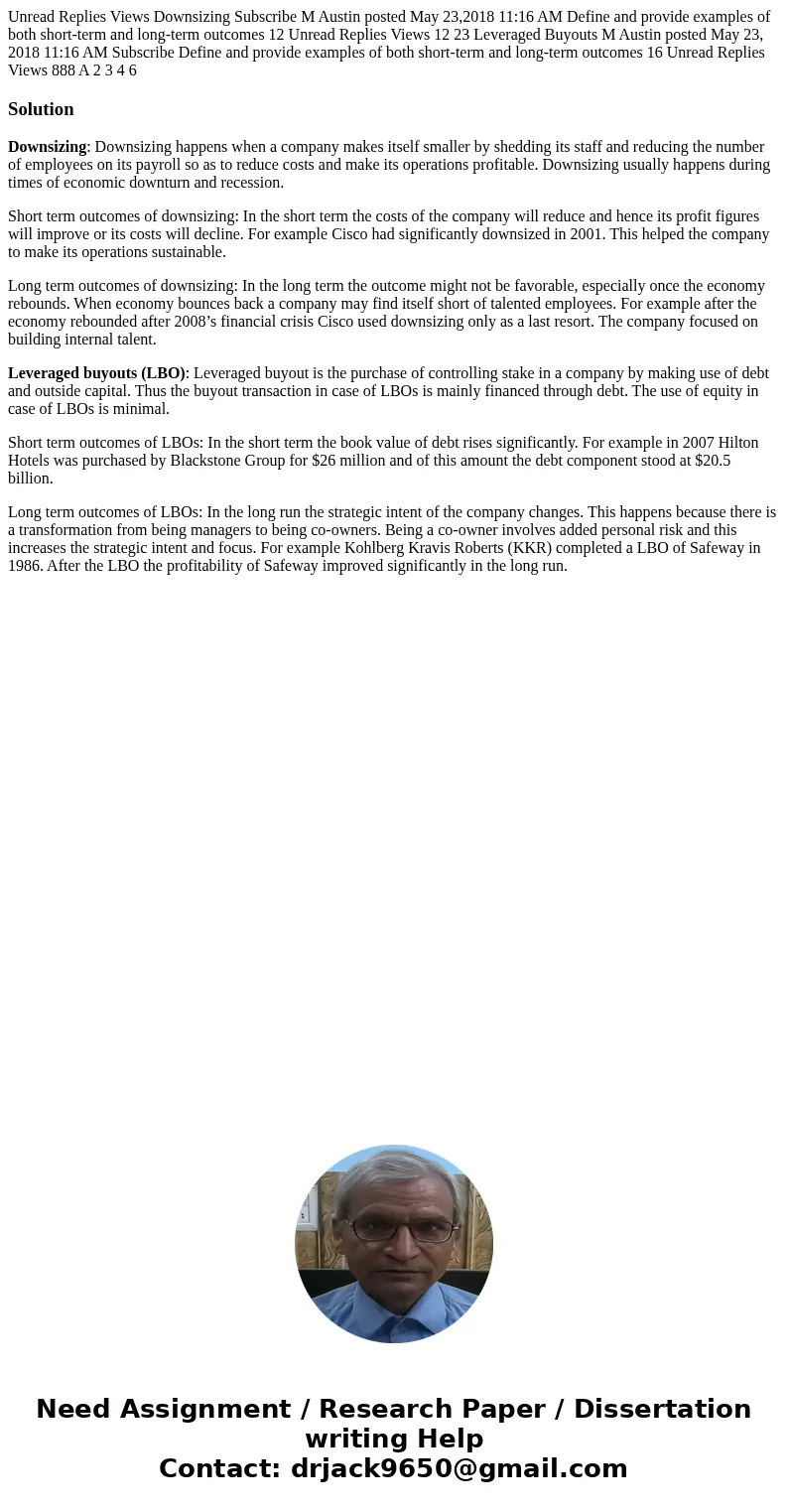Unread Replies Views Downsizing Subscribe M Austin posted Ma
Solution
Downsizing: Downsizing happens when a company makes itself smaller by shedding its staff and reducing the number of employees on its payroll so as to reduce costs and make its operations profitable. Downsizing usually happens during times of economic downturn and recession.
Short term outcomes of downsizing: In the short term the costs of the company will reduce and hence its profit figures will improve or its costs will decline. For example Cisco had significantly downsized in 2001. This helped the company to make its operations sustainable.
Long term outcomes of downsizing: In the long term the outcome might not be favorable, especially once the economy rebounds. When economy bounces back a company may find itself short of talented employees. For example after the economy rebounded after 2008’s financial crisis Cisco used downsizing only as a last resort. The company focused on building internal talent.
Leveraged buyouts (LBO): Leveraged buyout is the purchase of controlling stake in a company by making use of debt and outside capital. Thus the buyout transaction in case of LBOs is mainly financed through debt. The use of equity in case of LBOs is minimal.
Short term outcomes of LBOs: In the short term the book value of debt rises significantly. For example in 2007 Hilton Hotels was purchased by Blackstone Group for $26 million and of this amount the debt component stood at $20.5 billion.
Long term outcomes of LBOs: In the long run the strategic intent of the company changes. This happens because there is a transformation from being managers to being co-owners. Being a co-owner involves added personal risk and this increases the strategic intent and focus. For example Kohlberg Kravis Roberts (KKR) completed a LBO of Safeway in 1986. After the LBO the profitability of Safeway improved significantly in the long run.

 Homework Sourse
Homework Sourse